Graham Reid | | 6 min read

Brian Wilson – the genius behind the Beach Boys' hits from the elemental and Chuck Berry-borrowings of Surfin' USA to the ethereal Good Vibrations and beyond – cuts a sad and strangely out-of-time figure these days.
For more than a decade he has been touring his golden period in the mid-to-late Sixties – half a century ago – playing his reconstructed album SMiLE and more recently the mostly sublime Pet Sounds in their entirety, then throwing in a bunch of other pop hits from back in the day.
In an awkward phone interview – ostensibly about the 50th anniversary Pet Sounds reissue released on Friday, one iteration being a box set of 104 tracks of outtakes, live shots, mono and stereo editions and such – Wilson is almost monosyllabic in his answers.
He contradicts long-established facts and, when asked if he's disappointed that even Wilson fans probably don't listen to his recent albums -- like That Lucky Old Sun from '08 or even No Pier Pressure from last year -- he gets almost enthusiastic and says, “I don't know. I don't listen to new music.
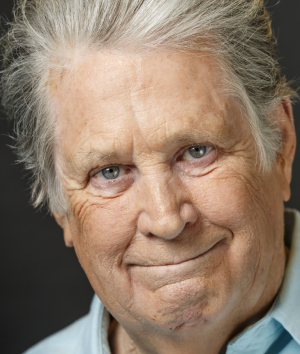 “I listen to oldies but goodies.”
“I listen to oldies but goodies.”
So you are very happy living in the past?
“Oh yeah.”
Well, Brian Wilson's past, especially around the Pet Sounds and into the subsequent Good Vibrations single, is perhaps a much more interesting place than his present as he goes through the motions of performance, a man fronting a covers band of his own music.
The masterfully conceptual Pet Sounds had its genesis in songs like In The Back of Mind in '65 from the Beach Boys Today! album.
Sung by brother Dennis – who drowned in '83 -- that orchestrated ballad reached beyond their familiar pop and into new musical areas, but also addressed the most intimate areas of relationships.
“I can't answer about that, it's too close to me,” he says when asked about it.
I get the impression that kind of lateral question is off the agenda which is “keep it simple”.
Anyway, back to our story . . .
With the Beach Boys touring relentlessly in late '65 and early '66, Brian worked in Los Angeles studios with musicians of the Wrecking Crew to create the music for what would become Pet Sounds.
And he had a conceptual idea in mind, the theme of spiritual awareness and spiritual love. The album charts a course through spiritual love from joy and the freshness of a relationship (Wouldn't It Be Nice) to Caroline No, the final song on the album about love which has been eroded by familiarity: "What happened to that happy glow . . .”
“Yeah,” says Brian flatly, “I wanted to write about spiritual things, about spiritual feelings and spiritual trips.”
This was something very much in the air at the time, people were looking beyond the normal world?
“Yeah, I was looking for something different that a lot of people could relate to. I wanted it to be songs that people could have feelings for.”
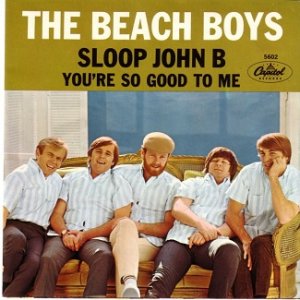 But Brian, some argue that Pet Sounds'
thread of love and spirituality was compromised by the inclusion of
the folk-pop Sloop John B recorded the previous year and not part of
the Pet Sounds' sessions? So it must have been disappointing when
Capitol put Sloop John B in the middle of the song cycle?
But Brian, some argue that Pet Sounds'
thread of love and spirituality was compromised by the inclusion of
the folk-pop Sloop John B recorded the previous year and not part of
the Pet Sounds' sessions? So it must have been disappointing when
Capitol put Sloop John B in the middle of the song cycle?
“Well, no. We put it on the album as soon as we recorded it.”
But didn't you think the upbeat folk-pop of that broke the mood of what you conceived?
“Yeah.”
And that was disappointing.
“Yeah, it was.”
And also the record company didn't promote the album?
“No.”
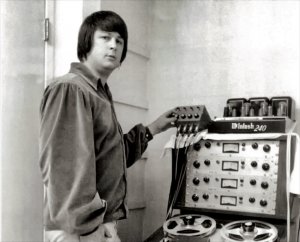 As the album was being recorded – and
the Beach Boys only contributed vocal parts when they came back from
touring – Wilson toyed with releasing it under his own name. In
fact the single Caroline No did come out credited to just Brian
Wilson shortly before Pet Sounds was released.
As the album was being recorded – and
the Beach Boys only contributed vocal parts when they came back from
touring – Wilson toyed with releasing it under his own name. In
fact the single Caroline No did come out credited to just Brian
Wilson shortly before Pet Sounds was released.
As Wilson notes in his '92 autobiography Wouldn't It Be Nice (co-written with Todd Gold) it only got to number 23 on the US charts and the record company panicked.
“They immediately rushed out Sloop John B which was more in line with the Beach Boys' formula and by May '66 it was number three.
“That was more like it,” he writes with a smidgen of cynicism.
What is also worth noting about Pet Sounds – Wilson prompted to up his game by hearing the Beatles' Rubber Soul released in December '65 -- is that Wilson worked with lyricist Tony Asher, a jingle writer for an ad agency whom he barely knew.
Wilson had met Asher some months previous and rang him out of the blue to see if he'd be keen to write lyrics with him. And Tony Asher took three weeks off work?
“Yeah. I liked his ability with words, I liked how he talked. I would write four bars and he would write four bars of lyrics, and that's how we wrote every song on the album. It took three months to make that album and we all worked hard.”
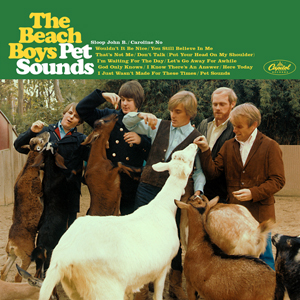 Yet Wilson didn't work with Asher –
who articulated some of his deepest emotions – afterwards.
Yet Wilson didn't work with Asher –
who articulated some of his deepest emotions – afterwards.
“No, I started working with Van Dyke Parks. I wanted to try new directions.”
And after Good Vibrations, Wilson famously cracked up during the sessions for his planned masterpiece SMiLE and for years much of his life was put on hold.
Five years ago the SMiLE album was reconstructed by Wilson and others and it arrived as a massive box set which included numerous outtakes and rehearsals, and a decade previous he'd already toured playing some version of SMiLE in its entirety.
Now he's been doing the same with Pet Sounds.
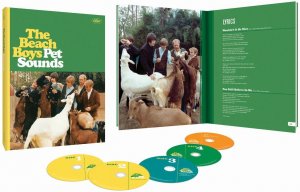 The expanded edition of Pet Sounds
includes dozens of Wilson's meticulously crafted backing tracks, many
of which stand as masterful miniature pop instrumentals There are
beguiling string overdubs (as for Don't Talk) which are isolated from
the songs. Or conversely Let's Go Away For A While appears without
the string section.
The expanded edition of Pet Sounds
includes dozens of Wilson's meticulously crafted backing tracks, many
of which stand as masterful miniature pop instrumentals There are
beguiling string overdubs (as for Don't Talk) which are isolated from
the songs. Or conversely Let's Go Away For A While appears without
the string section.
There is Wilson's vocal-free piano demo for Don't Talk, the delicate musical backing for Let's Go Away, numerous studio runs-through of backing tracks or vocal sessions (where different Wilsons, Al Jardine or Mike Love take the lead).
When the Beach Boys vocals tracks are isolated (as in the 11 inclusions from the sessions at the Stack-O studios) you cannot help but be in awe of their synchronicity and complex harmonics. They'd grown up on doo-wop and so the sibling voices lock into place seamlessly. It is revelatory, and a reminder of their vocal gifts.
And the live tracks – including the astonishing Good Vibrations – prove they could also, 95% mostly, do that complex song on stage. Brian had schooled them on it but their discipline and finely attuned ears shine through.
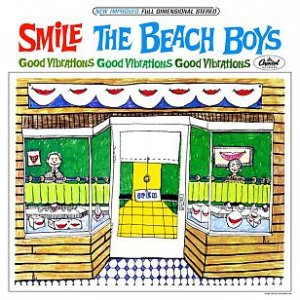 Brian Wilson might be the acclaimed
guiding genius and the Wrecking Crew musicians the players who could
realise his musical vision, but there is no deny that – at the time
at least – Brian needed the Beach Boys also.
Brian Wilson might be the acclaimed
guiding genius and the Wrecking Crew musicians the players who could
realise his musical vision, but there is no deny that – at the time
at least – Brian needed the Beach Boys also.
The massive expanded set might be – as with the SMiLE box – for the obsessive or completist. But it is an insight into how complex pop music can be meticulously crafted.
And although renown as a perfectionist in the studio – hence the hundreds of hours of rehearsal tapes – Wilson says he is happy to let people hear his working method.
“Yeah!”
And so once again Brian Wilson – who still releases albums under his own name and as recently as 2012 recorded with the Beach Boys for the album That's Why God Made the Radio – is out there living out his past.
And on the movie screen too with the Brian bio-pix Love and Mercy which he says he has seen a few times.
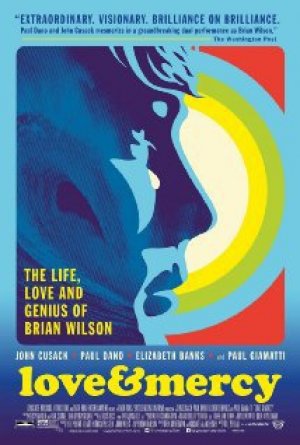 “Yeah, I thought it was a great movie
and the actors portrayed me very well,” he recites without emotion,
as if there is a script in front of him.
“Yeah, I thought it was a great movie
and the actors portrayed me very well,” he recites without emotion,
as if there is a script in front of him.
You don't feel uncomfortable when you have to look at your past like that, a period when you were not in good shape?
“No. It's very difficult to answer these questions,” he says in the same slightly staccato, agitated voice he has used throughout and on every occasion I have spoken with him.
So it is appropriate then to simply thank him for his time and congratulate him on the reissue.
“Thank you for the interview,” he says before I can finish my sentence.
And 74-year old Brian Wilson says goodbye to the awkward present tense and we are left in it.
To do what?
To acknowledge the genius he once was, which Pet Sounds – an oldie and a goodie, but also a timeless one – confirms.

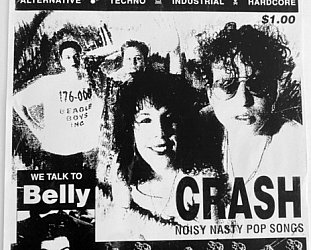
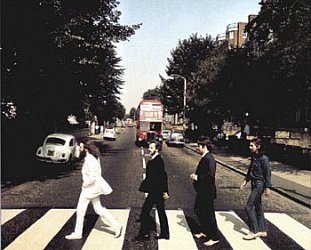

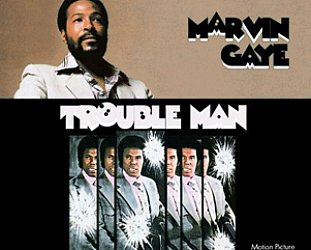
mason baker - Jun 14, 2016
A very interesting man!
Savelisa - Jun 15, 2016
Great questions! Shame about the... answers.
Savepost a comment